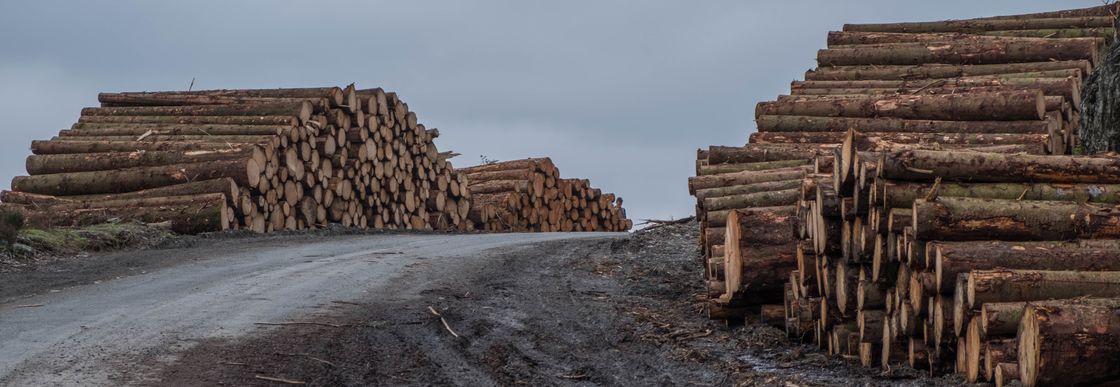Doctoral thesis
Jonas Zetterholm (2021) Evaluation of emerging forest-industry integrated biorefineries - Exploring strategies for robust performance in face of future uncertainties.
Elina Bryngemark (2021) The Economics of Biofuel Development: Policy Incentives and Market Impacts
Johan Ahlström (2020) Shaping Future Opportunities for Biomass Gasification - The Role of Integration.
Academic thesis
Bryngemark E (2019). The Competition for Forest Raw Materials in the Presence of Increased Bioenergy Demand. Licentiate thesis, LTU.
Zetterholm (2018). Forest based biorefinery supply chains - Identification and evaluation of economic, CO2, and resource efficiency. Licentiate thesis, LTU.
Ahlström J (2018). Cost-Effective Pathways for Gasification-Based Production of Biofuels. Licentiate thesis, Chalmers.
Scientific publication
Ahlström JM, Alamia A, Larsson A, Breitholtz C, Harvey S, Thunman H. Bark as feedstock for dual fluidized bed gasifiers-Operability, efficiency, and economics. International Journal of Energy Research 2019;43:1171–90. https://doi.org/10.1002/er.4349
Ahlström JM, Harvey S, Papadokonstantakis S. Forest residues gasification integrated with electrolysis for production of SNG – modelling and assessment. Comput. Aided Chem. Eng., 2018, p. 109–14. https://doi.org/10.1016/B978-0-444-64241-7.50013-6
Ahlström JM, Pettersson K, Wetterlund E, Harvey S. Value chains for integrated production of liquefied bio-SNG at sawmill sites – Techno-economic and carbon footprint evaluation. Applied Energy 2017;206:1590–608. https://doi.org/10.1016/j.apenergy.2017.09.104
Ahlström JM, Walter V, Göransson L, Papadokonstantakis S. The role of biomass gasification in the future flexible power system – BECCS or CCU? Inskickad för publiering i Renewable and Sustainable Energy Reviews 2021.
Ahlström JM, Zetterholm J, Pettersson K, Harvey S, Wetterlund E. Economic potential for substitution of fossil fuels with liquefied biomethane in Swedish iron and steel industry – Synergy and competition with other sectors. Energy Conversion and Management 2020;209:112641.
https://doi.org/10.1016/j.enconman.2020.112641
Bryngemark E. Bioenergy versus forest conservation: a partial equilibrium analysis of the Swedish forest raw materials market. Scandinavian Journal of Forest Research 2020;35:367–82. https://doi.org/10.1080/02827581.2020.1808696
Bryngemark E. Second generation biofuels and the competition for forest raw materials: A partial equilibrium analysis of Sweden. Forest Policy and Economics 2019b;109:102022. https://doi.org/10.1016/j.forpol.2019.102022
Bryngemark E, Söderholm P. Do green industrial policies promote domestic production of biofuels? A panel data analysis of OECD countries. Manuskript 2021.
Bryngemark E, Söderholm P, Thörn M. Green Public Procurement in Swedish Municipalities - An Econometric Analysis based on Survey Data. Manuskript 2021.
Zetterholm J, Ahlström J, Bryngemark E. Large-scale introduction of forest-based biorefineries: Actor perspectives and the impacts of a dynamic biomass market. Biomass and Bioenergy 2020a;142:105782. https://doi.org/10.1016/j.biombioe.2020.105782
Zetterholm J, Bryngemark E, Ahlström J, Söderholm P, Harvey S, Wetterlund E. Economic Evaluation of Large-Scale Biorefinery Deployment: A Framework Integrating Dynamic Biomass Market and Techno-Economic Models. Sustainability 2020b;12:7126. https://doi.org/10.3390/su12177126
Zetterholm J, Mossberg J, Jafri Y, Wetterlund E. “We need stable, long-term policy support!” – evaluating the economic rationale behind the prevalent investor lament. Manuskript 2021.
Zetterholm J, Pettersson K, Leduc S, Mesfun S, Lundgren J, Wetterlund E. Resource efficiency or economy of scale: Biorefinery supply chain configurations for co-gasification of black liquor and pyrolysis liquids. Applied Energy 2018a;230:912–24. https://doi.org/10.1016/j.apenergy.2018.09.018
Zetterholm J, Wetterlund E, Pettersson K, Lundgren J. Evaluation of value chain configurations for fast pyrolysis of lignocellulosic biomass - Integration, feedstock, and product choice. Energy 2018b;144:564–75. https://doi.org/10.1016/j.energy.2017.12.027

